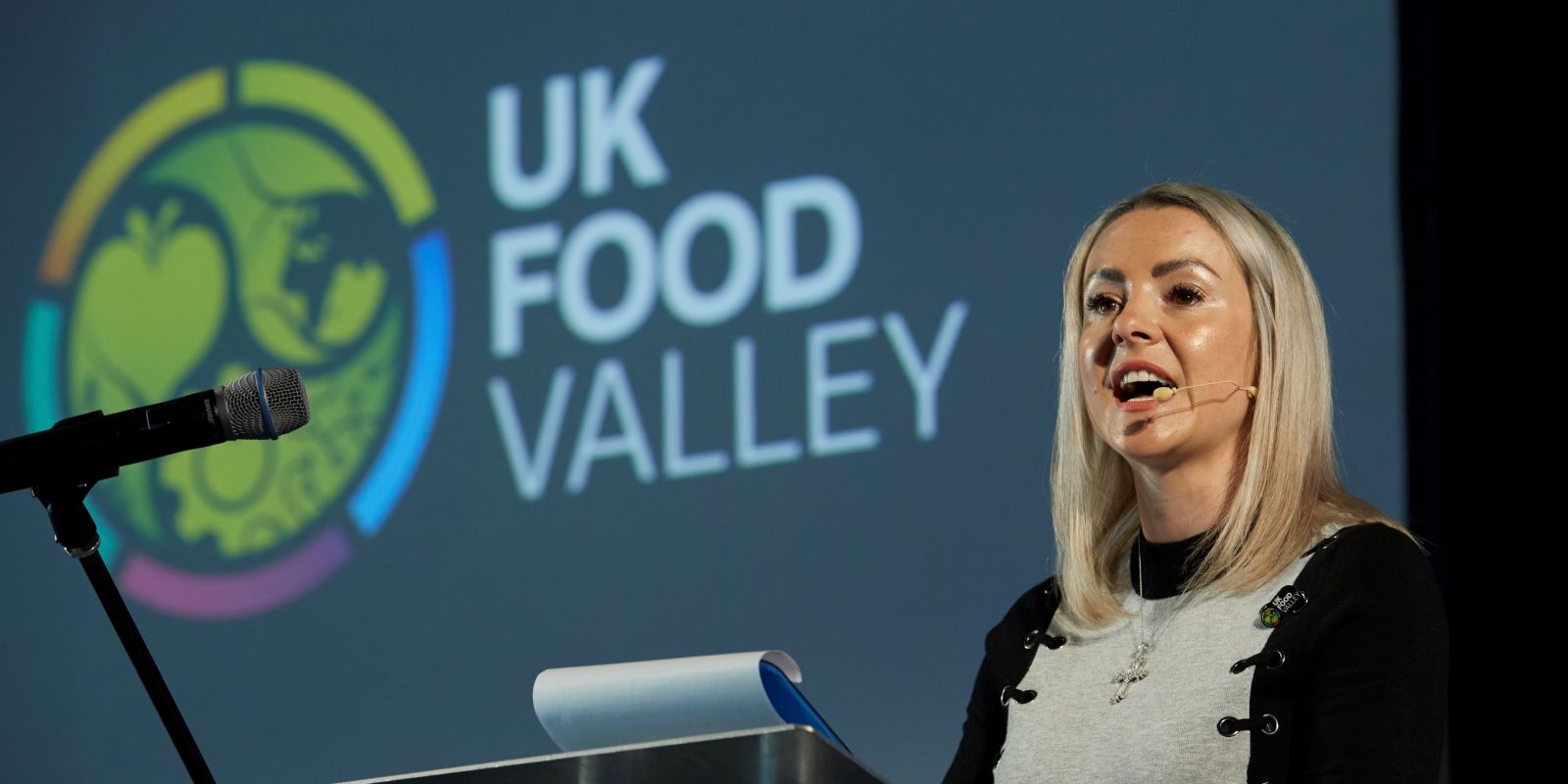UK FOOD VALLEY LAUNCHED AT ANNUAL LEP CONFERENCE
After a year’s absence the annual conference of the Greater Lincolnshire Local Enterprise Partnership returned to the Lincolnshire Showground yesterday (Tuesday).
Over 250 delegates gathered to hear talks and Q&A sessions which focused on four game changing sectors for Greater Lincolnshire and Rutland: defence and security, energy, ports and logistics and the food processing sector.
Delegates heard how the LEP continues to work with businesses, local authority partners and education institutions to drive growth and enterprise, ensuring that the voice of the business community is heard loud and clear.
The conference was also an opportunity to highlight the positive impact the Greater Lincolnshire LEP has had in the ten years since its creation. Since 2011 the LEP has:
- created 3,000 jobs
- transformed the economy by securing £307m from Government for Greater Lincolnshire
- engaged with 20,000 businesses
The highlight of the event was the launch of the first game-changing sector UK Food Valley, an ambitious project to create a top 10 global food cluster and level up Greater Lincolnshire.
Its priorities are to:
- accelerate food chain automation and digital technology adoption to deliver productivity growth and high value jobs
- deliver low-carbon food chains from farm to fork by focusing on low carbon technologies for production, processing and distribution
- develop the market potential of naturally good-for-you foods and new sources of protein such as fish, vegetables, salads, fruit, pulses and lean meat
Among the speakers who contributed to the launch were Sarah Louise Fairburn, Chair of the LEP’s Food Board and founder of luxury hamper firm Imp & Maker; Mark Suthern, former Head of Agriculture at Barclays Bank; Martin Hanson, Director of Agricultural Business at HSBC; Kate Halliwell, Chief Scientific Officer at the Food & Drink Federation; Simon Dwyer, MD of Seafox Management Consultants; Neal Collishaw, Operations Director at Worldwide Fruit; and Professor Mark Swainson from the National Centre for Food Manufacturing at the University of Lincoln.
The UK Food Valley aims to support growth and encourage inward investment by promoting the scale, diversity and importance of the food sector to the area, and by ensuring that existing food sector companies and new investors are supported.
The UK Food Valley currently supports around 75,000 food sector jobs, 18% of jobs in the area compared to 4% of the UK workforce. At its heart this concentration is much higher, for example in South Holland, which focuses on fresh produce and logistics, where 42% of the local workforce is in agrifood.
Other sectors under the spotlight at the conference included the defence sector in Greater Lincolnshire, the freeport opportunity at the Humber ports and the clean growth agenda, including the growing offshore wind energy sector and the Humber Net Zero decarbonisation project.
“It was really fantastic to bring people together for an in-person networking event where delegates could meet and catch up with old colleagues and contacts,” said Pat Doody, Chair of the Greater Lincolnshire LEP.
“We gathered an impressive range of expert speakers under one roof and as a result the discussions were extremely insightful and worthwhile.
“The pandemic has been a difficult period for everyone but I’m very excited about the opportunities that present themselves over the coming years.”
Sarah Louise Fairburn, who co-hosted the event, was delighted with the response to the launch of the UK Food Valley. “The energy in the room was palpable and you could feel a growing sense of excitement as the scale of this opportunity became clear,” she said.
“What we’re creating here is something that is not just nationally but internationally significant. This is the place to run a food business. I am personally so excited about the UK Food Valley because it’s all about product innovation and product development. Every aspect of it can be done here in Greater Lincolnshire and that’s what I love about our area.
“The UK Food Valley really will take the agrifood sector to the next level.”
(Images: Alan Fletcher / A Shot in the Dark)



